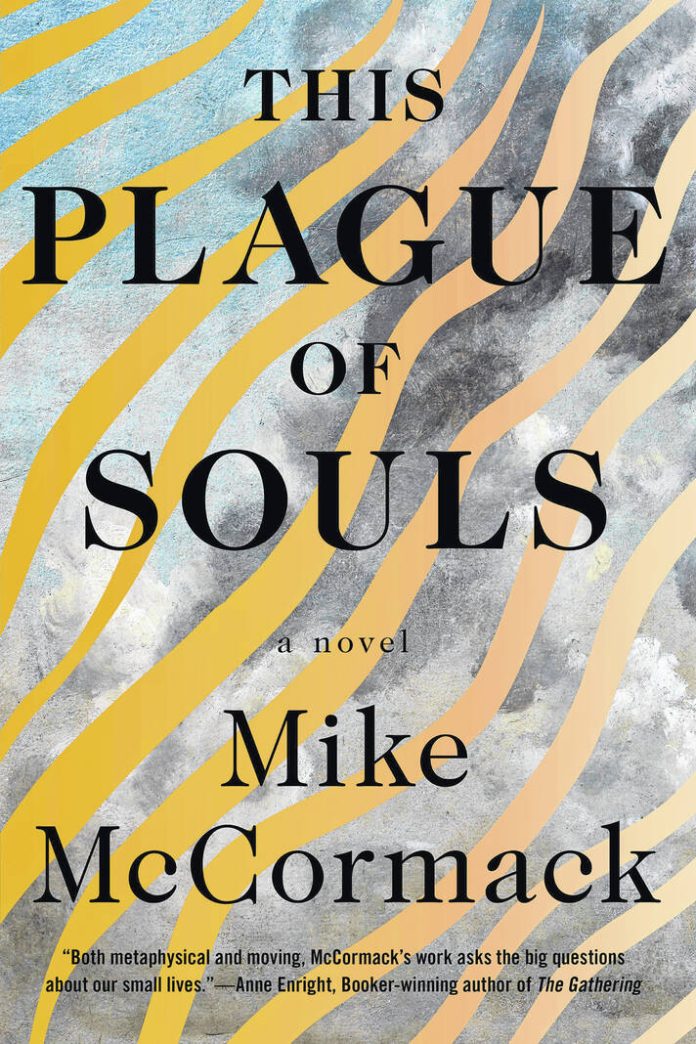Nealon returns from a few months in prison to an empty house, his wife and young son vanished. It’s just the first of the disturbing ambiguities in the gripping, deeply unsettling “This Plague of Souls.”
Mike McCormack’s brief novel opens with that scene and the creepy vibe never lets up. Where is Nealon’s family? Why have they left without telling him? Why does his house in rural Ireland seem different? Why was he in jail and, if he did whatever he was accused of, why was he released? Who is the stranger who keeps calling to demand a meeting in a town two hours away? What is the strange doom that lurks over everything in “Plague” (starting with that title), which talks a lot about the end of the world? Is “Nealon” his first name or his last name?
It’s a difficult-to-categorize book, in the same way that Dan Chaon novels such as “Await Your Reply” are tough to pin down. It reads like a thriller, with action that races along, plunging Nealon into situations he must figure out how to navigate (I’d finished “Plague” before I realized it has just two characters). But the novel has more on its mind than thrilling us, as becomes clear when Nealon stops hanging up on the stranger and, against his better judgment, agrees to meet.
I’ve probably gotten as far into this review as I can without using the word “existential.” Although no specific apocalypse is mentioned, “Plague” is dotted with ominous details that suggest the end is near: a malfunction in Ireland’s technological grid, a small Irish town whose residents mostly toil in a grim Botox factory (Westport, Ireland, is in fact, Botox Central), ominous talk about addiction and despair.
It’s a bleak vision and it’s possible Nealon’s family would be better off without him but McCormack is such a graceful, compassionate writer that “Plague” is a joy to read. The language is simple, but each word feels exactly right, like in a great poem. For instance, remembering the sound of his son getting up in the night to pee, Nealon recalls “his small feet hitting the ground in a soft rhythm, the sound of him raising the lid of the toilet and the trickle of water, one of those small pleasures he has no word or context for. In the middle of this night, the memory comes to him now as pure loss, as pure a loss as he could imagine.”
“This Plague of Souls” is a companion to McCormack’s Booker Prize-shortlisted “Solar Bones.” You don’t need to know anything about “Solar” to enjoy “Plague,” which stands on its own. But, like “Solar,” “Plague” is a suspenseful and beautiful work by a writer who hates where he believes the world is headed and is attuned to the simple joys we are in danger of losing.







